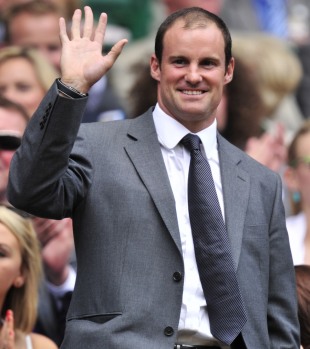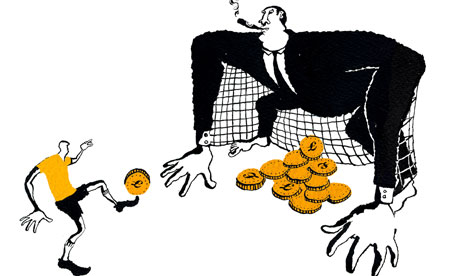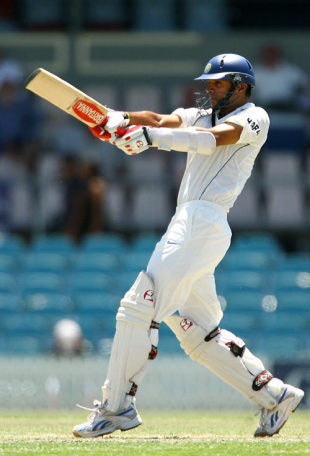The master of being himself
Andrew Strauss doesn't pose, shout, or try to shove all his players into one mould. Being his own man may just be his greatest virtue
Ed Smith
August 15, 2012

| |||
Related Links
Players/Officials: Andrew Strauss | Kevin Pietersen
Series/Tournaments: South Africa tour of England
Teams: England
| |||
Andrew Strauss plays his 100th Test for England tomorrow. I was an exact contemporary of Strauss - at school, university and in county cricket. Few predicted he would play 100 Tests. Indeed, Strauss himself would have laughed at the idea when he was starting out as a cricketer. Owais Shah, not Strauss, was the teenage Middlesex prodigy. Not that Strauss minded not being the centre of attention. Waiting for the right moment, biding his time - that is the hallmark of his distinguished career.
Some sportsmen declare their hand at the outset. Graeme Smith always said he wanted to captain South Africa when he was still a kid. Strauss, in contrast, is not someone to reveal his hand so lightly. Did he always have deep ambitions that were hidden by his self-effacing English reserve? Or did he only realise by increments - as he gradually worked his way through the field - that he could go so far, as a player and a captain? I've never been sure of the answer. Perhaps he isn't either.
In one crucial respect, Strauss has never changed. He has always had the social and psychological confidence to be himself. As a player, he has never puffed out his chest in phony displays of patriotic guts and determination. As a captain, he is more interested in calmness and balance than show-off field placings or macho arm-waving.
Being yourself is the most underrated virtue in sport, as we've learnt once again during the London Olympics. Some sports psychologists have argued that athletes could unlock hidden potential if they adopted the same uber-relaxed, super-confident pre-race routine as Usain Bolt.
I take the opposite view. The lesson of Usain Bolt (apart from the obvious one: be more talented than everyone else) is the profound value of being yourself. Watch again the few seconds before the 200 metre final, as the sprinters are introduced to the crowd. Bolt, of course, does his usual showman act - clowning and gesturing, looking at once intimidating and relaxed.
The revealing thing is that all the other sprinters awkwardly followed his example, trying to project the aura of Bolt without the underlying conviction. The American sprinter Wallace Spearmon stared into the camera lens as he shouted with bristling machismo, "My time, my time!" - all of which did nothing to persuade anyone that it was his time, but merely reinforced the truth that it was Bolt's.
Like Bolt, a very few lucky cricketers - such as Sir Vivian Richards or Ian Chappell - are naturally ultimate alpha males. The rest have to reach an accommodation with the fact that they are extremely good performers without being kings of the jungle. The most common mistake is to copy the wrong example - to try to be something you're not - like the sprinters who try to act like Bolt without being Bolt.
During the period of Australian supremacy, England teams wasted too much energy trying to behave like Australians, as though the skills would follow naturally from the style. But it doesn't work like that. Being yourself is always the best policy.
Strauss has been the master of being himself. Like Mark Taylor, he has never tried to hide the fact that he is a courteous, measured and controlled person. He has never got sucked into behaving like an alpha male show-off. That innate confidence has allowed the England team to grow up.
The most effective captains do not impose their own personality on the group; they encourage the team to develop its own authentic voice. Strauss celebrates diversity rather trying to shoehorn all players into one model. "I wouldn't want to captain a team in which everyone is like me," he has said. It gets to the heart of his captaincy.
And yet, for all his achievements, Strauss takes to the field in his 100th Test under undeniable pressure. He has just endured one of the most difficult spells of his captaincy. On the field, England have suffered a poor 2012 in Tests. Whatever happens at Lord's, they have failed to win a home series against a great rival.
Off the pitch, the estrangement of Kevin Pietersen from the England management (more on this in a moment) has been an uncomfortable circus for everyone involved. And it would be only human, for a player about to win his 100th cap, to regret that the Pietersen issue has dominated the lead-up to such an important Test.
| Strauss has been the master of being himself. Like Mark Taylor, he has never tried to hide the fact that he is a courteous, measured and controlled person | |||
But paradoxically, when he looks back at his England career, Strauss may be grateful that he entered his 100th Test with so much riding on the result. Far from being an easy lap of honour, Strauss' 100th Test is exactly that - another test of character. And sport - as Strauss knows very well - is at its most rewarding when it is most challenging.
****
A fortnight ago I added a second, shorter item to my column to accommodate an instinct I had about Kevin Pietersen. It seemed to me, looking from the outside, that something big was about to happen. I had no evidence beyond a deep-seated hunch. Pietersen had been looking increasingly distant and hurt, and the England management seemed to be losing patience.
But I noticed years ago that Pietersen often plays at his scintillating best when he feels wronged. And he did just that once more. His 149 at Headingley was one of the great innings played for England in the modern era. When it is a case of "KP against the world", he is capable of almost anything.
Is there any way, I wonder, that Pietersen can access that strand of his personality - the resilient individualism and epic self-belief that defined his Headingley hundred - without actually orchestrating a situation where it really is "KP against the world"?
Can't he just imagine life is like that - that he has a giant score to settle with the world - while, in fact, behaving normally, just like everyone else?
I hope so. Because it seems a terrible curse if he must experience genuine turmoil to access his deepest talents.


